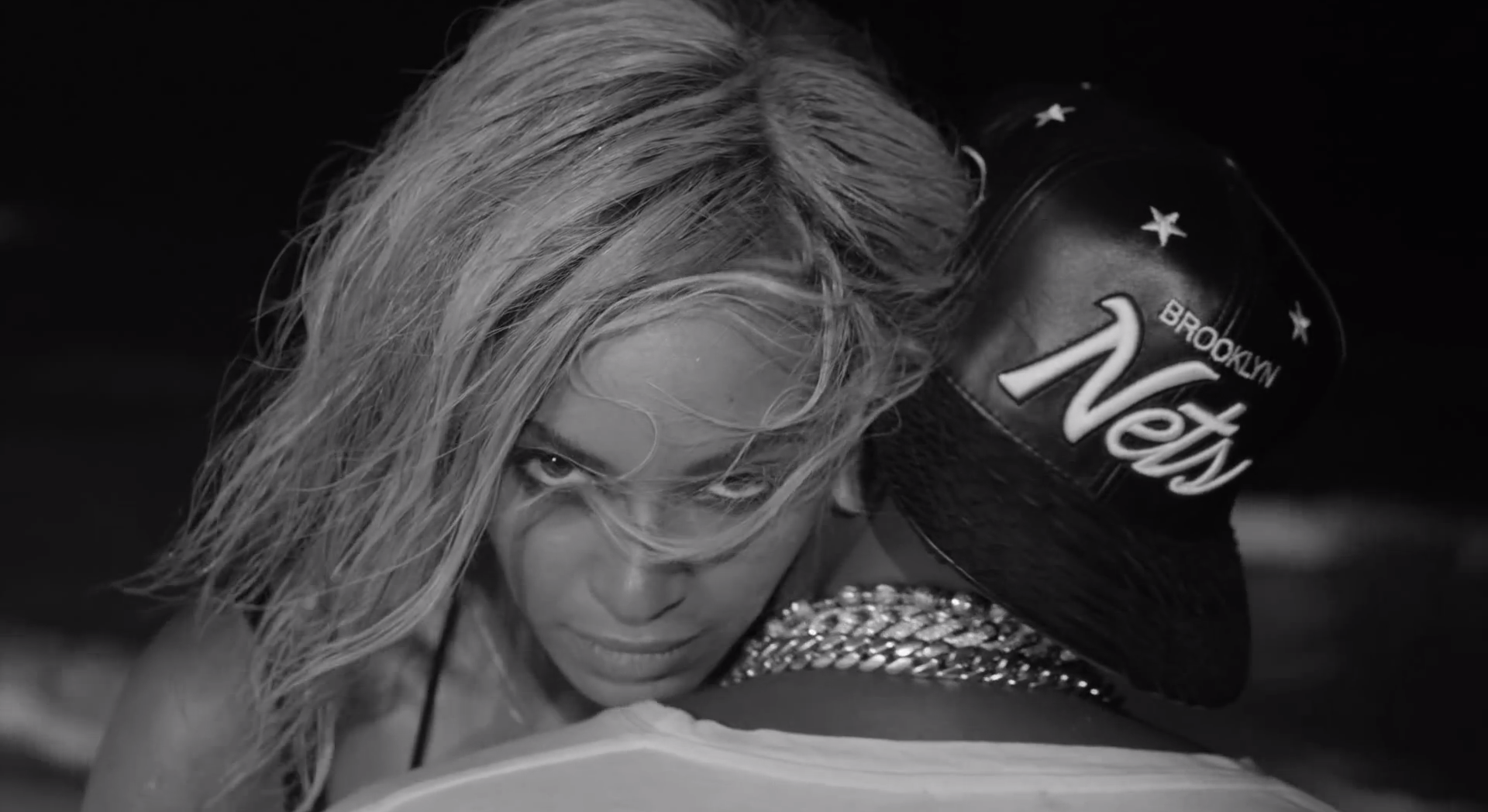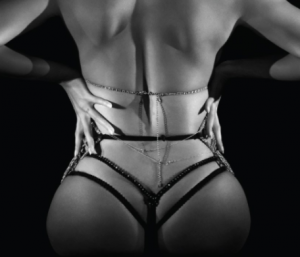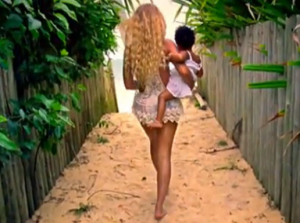On Beyonce, Feminism, and Motherhood

Beyonce’s self-titled visual album which she released in December, much to the surprise of, well…the world, has stirred up an absurd whirlwind of controversy and praise. Queen Bey has become the object of fascination and subject of much conversation and speculation, especially in the femi-sphere. Feminist critics have been spewing out mixed reviews of how they feel about Bey’s new album at a ridiculous, albeit unprecedented, speed. Mainstream outlets like Time Magazine, for instance, have gone as far as to say that Beyonce “has become the embodiment of modern feminism for a generation that has been reluctant to claim the word.” Supporters have also exhibited non-stop praise for Beyonce’s choice to sample a compilation of a series of quotes by Chimamanda Ngozi Adichie’s recent TedxEuston talk titled “We Should All Be Feminists” in her song titled “Flawless,” as well.
The Guardian’s Mikki Kendall stated in her piece titled Beyoncé’s new album should silence her feminist critics that Beyonce’s “new album might as well be titled ‘Having it all, the Beyonce way.’”
And that’s exactly it. Her new album basically sends the most awesome message to mothers everywhere: you can have your cake and eat it too.
Mothers are constantly policed in their actions because, apparently, when you have a child you’re supposed to give up any aspect of your life that doesn’t pertain to your child and/or spouse. Beyonce just schooled us all on the fact that a mother can be:
Sexual:

My use of “sexual” instead of “sexualized” is more than just purposeful. To have sexual desire is typically seen as the domain of men –– women are supposed to be the sex object and have no sexual desire of their own. Bey, in Partition, Drunk in Love, and Blow, among others, showed how she can be both the object of sexual desire and the person who desires the sex –– walking a fine line that mothers are supposed to never walk.
Intelligent: In many ways, Beyonce does a better job of explaining how awesome she is than I could. In part two of her mini-documentary about her newest album, titled “Imperfection,” she explains that she was “scrolling through videos about feminism on YouTube and [ran] across this video of this incredible Nigerian author Chimamanda Adichie. Everything she said is exactly how I felt” and goes on to play the quote from Flawless: “we raise girls to see each other as competitors, not for jobs or for accomplishments, which I think can be a good thing, but for the attention of men.” Though Beyonce had the ability to seek education on feminism and feminist issues elsewhere, she taught herself about it via something as simple as YouTube clips. This is powerful because it shows how accessible this type of knowledge is to the masses with the advancements of the internet. In a way, it is also an example of an era where, if a mother has the time, she can access information on various topics through the internet without any formal education which is often not easily accessible.
Empowered:

Beyonce opens part four of her mini-documentary with the line “Just because you become a mother doesn’t mean you lose who you are.” She goes on to eventually explain,
“I was very aware that I was showing my body… I wanted to show my body… I wanted to show that you can have a child and you can work hard and you can get your body back. I know finding my sensuality, getting back into my body… it was important to me that I expressed that in this music because I know that there’s so many women that feel the same thing after they give birth. You could have a child and still have fun and still be sexy and still have dreams and still live for yourself.”
Though there has been much praise for Beyonce and her seemingly revived feminism, there has also been practically an entire canon of talk about how feminist Beyonce really is. Critics have found inconsistencies in Beyonce’s music and life and magnified them as a means to prove, once and for all, that she’s not as feminist as we all think is. Bey’s husband, famed rapper Jay-Z, who is featured on Drunk in Love raps a lyric which states “I’m Ike Turner, turn up/Baby know I don’t play/Now eat the cake, Anna Mae.” This lyric, and Beyonce’s lack of disapproval in allowing it to remain on the track and also standing by him, even singing with him, as he repeated it in their recent Grammy performance, has driven a wedge into Beyonce’s feminist supporters. Huffington Post’s Ellie Slee addressed Beyonce directly in her recent piece when she explained:
“Beyonce: when you smile affectionately and sing along with that lyric, you are propagating a cycle of humiliation, of rape, of violence that is still horrifically real for women all over the world. The fact that Tina Turner broke the cycle by no means makes it acceptable for you to try to make her situation a sexy one.”
Slee’s critique is an accurate one. Beyonce, as a self-proclaimed feminist, should see that there is something inherently wrong in glorifying and sexualizing a situation of violence against a woman ––especially a situation as severe as that of Tina and Ike Turner. Bey, and Jay-Z for that matter, should be held accountable for the lyric and it’s implications. However, I would argue that this does not and should not cause her to lose her feminist supporters and be touted as a non-feminist.
There is a fundamental disconnect amongst feminist critics and the reality of the acquisition of a feminist consciousness.
Everybody comes into their own, especially in terms of feminism, from a different place and in different time. We can’t expect Beyonce to have the same feminist consciousness as, say, someone who has been present in the aforementioned femi-sphere for much longer. So, in turn, we shouldn’t crucify Beyonce for her poor judgment which ultimately leads to further normalization of violence against women, but, rather, demand that she be held accountable. As Akiba Solomon stated in her recent piece for Colorlines,
“Moments like this matter. Even when they’re not supposed to be a big deal, or they’re ‘funny,’ or they mimic the video, or they come out of the faces of people we like, moments like this matter.”
However, this situation speaks to a larger issue of fighting over Beyonce’s feminism from which most,if not all of us, are fundamentally detached. As Mia McKenzie stated in her piece for Black Girl Dangerous in December,
“The black feminist blogosphere started showing up hard for Bey, defending her to all the white feminists who have thrown shade over the years and everybody from Mikki Kendall to Crunk Feminist Collective was declaring Bey a feminist. Like for sure. Like, seriously, why are y’all still questioning this?”
And I leave you with some food for thought. Would we still feel this way about Beyonce and/or the message she says about motherhood if:
- She was a single mother?
- Her and Jay-Z weren’t legally married?
- She wasn’t heterosexual?
- She wasn’t thin?
- She didn’t adhere to social standards of beauty?
- She didn’t have class privilege?
While Beyonce’s message to mothers is pervasive, strong, and needed, it’s important that we remain aware of how quickly our perceptions of that message could change when any of the aforementioned questions is posed.




